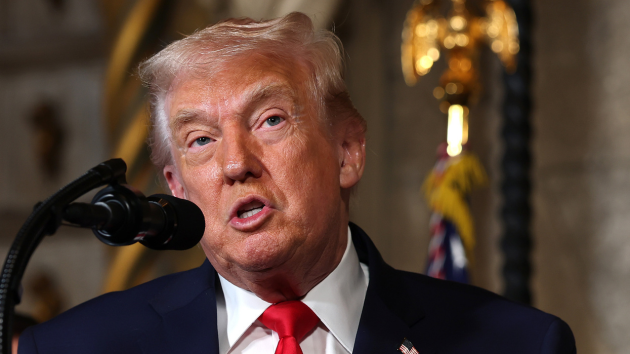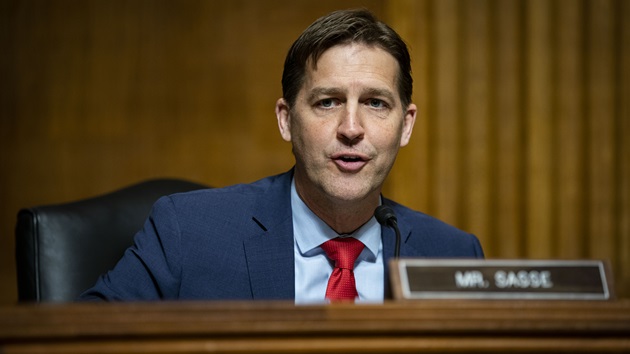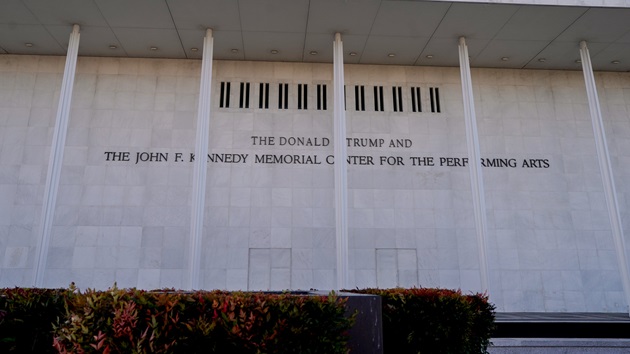Trump’s H1-B changes raise concerns about US tech economy’s future, ability to recruit specialty talent
Written by ABC Audio ALL RIGHTS RESERVED on September 27, 2025

(NEW YORK) — President Donald Trump’s executive order strapping a six-figure fee to the H1-B visa has created confusion for tech firms and the tens of thousands of foreign employees that the companies have depended on for their growth, according to immigration and business experts.
Trump and his officials touted the recent order to add a $100,000 fee for every H1-B application as one that would help create more job opportunities for Americans. This visa program allows U.S. employers to hire foreign workers in specialty occupations.
However, the president’s move will make it difficult for tech firms to expand U.S. operations or incentivize highly talented foreign workers to choose America as the place they launch their next big idea, Stuart Anderson, the executive director of non-partisan think tank National Foundation for American Policy, told ABC News.
“More than half of the billion-dollar start-ups have at least one immigrant co-founder,” Anderson said. “And those firms lead to thousands of jobs for Americans.”
Anderson, who served as the executive associate commissioner at the U.S. Immigration and Naturalization Service under President George W. Bush, acknowledged that the H1-B program was in need of reform, particularly when it came to mega corporations dominating the visa’s lottery system. However, he said the current administration’s approach does more harm to the program than good.
He and other analysts noted that even if the $100,000 fee is reversed, some damage to the tech economy may have already been done as entrepreneurs and prospective employees rethink their options.
“If you cut off highly skilled people from coming into the country, you’re going to cut off chances of having a dominant economy,” Anderson said.
How H1-B works
The H1-B visa program was created as part of the 1990 immigration bill and allowed foreign prospective employees with college and graduate degrees in select fields such as computer sciences, engineering and medical research to legally live and work in America.
The law allows for 65,000 H1-B visas a year, which lasts for three to six years, for applicants with bachelor’s degrees and an additional 20,000 a year for workers with higher-level degrees. Academic institutions are exempt from this cap.
Applicants can renew their visa when it expires with the approval of their employer.
A study released in March by Pew Research found that there were roughly 400,000 applications for the H1-B visa, the majority of which were for renewals.
In addition to paying for the visa’s fees, which are around $5,000 for filing costs, companies must follow strict rules in order for the visa to be approved, according to Greg Morrisett, the dean and vice provost of Cornell Tech.
“A company that files for an H1 has to provide an assertion that they hire for the same salaries as it does for an American citizen,” he said.
Morrisett said that many tech firms — such as Microsoft, Facebook and Google –have benefited from the program by hiring engineers and programmers from places like India, China and South Korea. He noted that these workers played essential roles in developing their products and successes.
Several major tech CEOs — including Microsoft’s Satya Nadella and Google’s Sundar Pichai — are foreign-born and were on H1-B visas after they finished their college and graduate studies in America.
“I think the U.S has led in technology and engineering because of the federal government’s investments and universities attracted the best minds and gave them the ability to thrive,” Morrisett said.
Despite its success, the program has come under criticism from conservative groups who argue that it takes jobs away from American-born workers.
Other critics argue that the visa lottery favors larger corporations, who have more money and resources to pay the filing fees and help process the applications, compared to smaller companies and startups.
Morrisett said the additional $100,000 fee will create a bigger push for the major corporations to get the H1-B talent.
“It’s devastating for the start-up world. The big tech companies can weather the storm but a lot of start-up companies simply don’t have the money,” he said.
The top companies with H1-B workers during the 2025 fiscal year were Amazon, with over 10,000 employees on the visa, followed by Tata Consulting Services, which has about 5,505, and Microsoft, Meta, Apple and Google, which each have around 5,100, according to U.S. Citizenship and Immigration Services.
Jeremy Robbins, the executive director of nonprofit advocacy group the American Immigration Council, told ABC News that smaller start-up firms are crucial for the tech industry’s growth. Every major tech company started off as a smaller mom and pop start-up that blossomed due to the right developer or engineer who cracked the code to bring an app or tech product across the finish line.
“Putting on a flat fee that privileges large companies over small ones, or incentivizes talent to go overseas or incentivizes companies to set up shop overseas, is not an answer,” he said.
Robbins acknowledged that some of the H1-B’s provisions needed tweaking. Some, such as the cap, are frozen in the economic landscape of the early ’90s, he noted. At the time, the country was in recession and falling behind in the tech boom.
“You want to think about how to do that and protect American workers. You would want to treat it differently from a boom time than during a recession,” he said.
Robbins said that Trump’s executive order on the H1-B “cut off the hand to treat a small pain in the finger.”
Trump’s EO creates confusion, fear
On Sept. 19, Trump signed the order adding $100,000 to the fees associated with the H1-B visa. He and Commerce Secretary Howard Lutnick said the order was to promote American jobs.
“That’s the point of immigration: Hire Americans, and make sure the people coming in are the top, top people,” Lutnick told reporters at the time. “Stop the nonsense of letting people just come into this country.”
When asked if the executive order’s new fee covered first-time H1 applicants or all applicants once it kicked in on Sept. 21, Lutnick responded, “Renewals, first time.”
“The company needs to decide… is the person valuable enough to have a $100,000 a year payment to the government? Or they should head home and go hire an American,” he added.
The actual order, however, had different guidance and the discrepancy led to the frantic letters, according to the experts. The order said that the fee was a one-time charge that would only cover first-time applicants, which led to many companies sending frantic letters to their H1-B employees urging them not to leave the country, according to the American Immigration Council’s Robbins.
He told ABC News that his organization received reports of H1 visa holders who were overseas frantically booking flights to return to the U.S. during the weekend because they and their employers had no concrete information about their legal status.
“It’s thrown everyone into a disarray, and there are still questions as to how this will affect companies and their employees,” he said.
Representatives for Meta, Amazon, Apple and Google did not respond to ABC News’ requests for comment. Representatives from Microsoft declined to comment.
Robbins said that there will likely be legal challenges to the executive order. Federal law allows USCIS to collect fees only for the purpose of processing, since the agency is totally funded by fees, and the president’s power to change immigration law is murky, according to Robbins.
In 2018, the Supreme Court ruled that the president’s travel ban was constitutional since he based it off national security concerns. However, two years later, a California federal court blocked a Trump executive order that limited the approval of H1-B visas during the pandemic.
“Stay tuned,” Robbins said when asked about more details about legal challenges.
Ripple effects
Whether or not Trump reverses his order either voluntarily or through the courts, the experts said that the American economy — especially the tech industry — will feel the effects of the move for years to come.
Morrisett said that he’s already heard concerns from Cornell Tech’s international students about their future job prospects in America in the wake of the order.
“When a student comes to study here, they get exposed to the tech ecosystem, they have a great idea, they want to create a company, and the start-ups have the tools to make that happen,” he said. “Now there are fewer incentives for them to stay in the country and foster that idea if they don’t have that visa.”
Morrisett added that the H1-B order, combined with the administration’s other actions to limit immigration such as Trump’s travel ban, increased deportation efforts and anti-immigration rhetoric, has tarnished America’s luster in the eyes of current and prospective foreign engineers.
“It is all compounding to the message, ‘We don’t want you in the United States,'” he said. “These are some of the smartest people in the world and they’re saying, ‘OK. We’ll go somewhere else.'”
Anderson said the talent won’t be the only group looking to more welcoming pastures. He noted that companies will be inclined to expand their presence internationally, countering Trump’s goal to strengthen America’s tech footprint.
“Even the smallest firms have international offices and if they want to get that skilled talent, they will go wherever they need to retain them,” Anderson said.
Robbins reiterated that there is definitely a need for reforms for the county’s immigration policies, including the H1-B program, but said leaders must recognize that the visa has been one of the most successful initiatives to expand the country’s tech industry and should not be hampered.
“Putting on a flat fee that privileges large companies over small ones, or incentivizes talent to go overseas or incentivizes companies to set up shop overseas, is not an answer,” he said.
Copyright © 2025, ABC Audio. All rights reserved.





